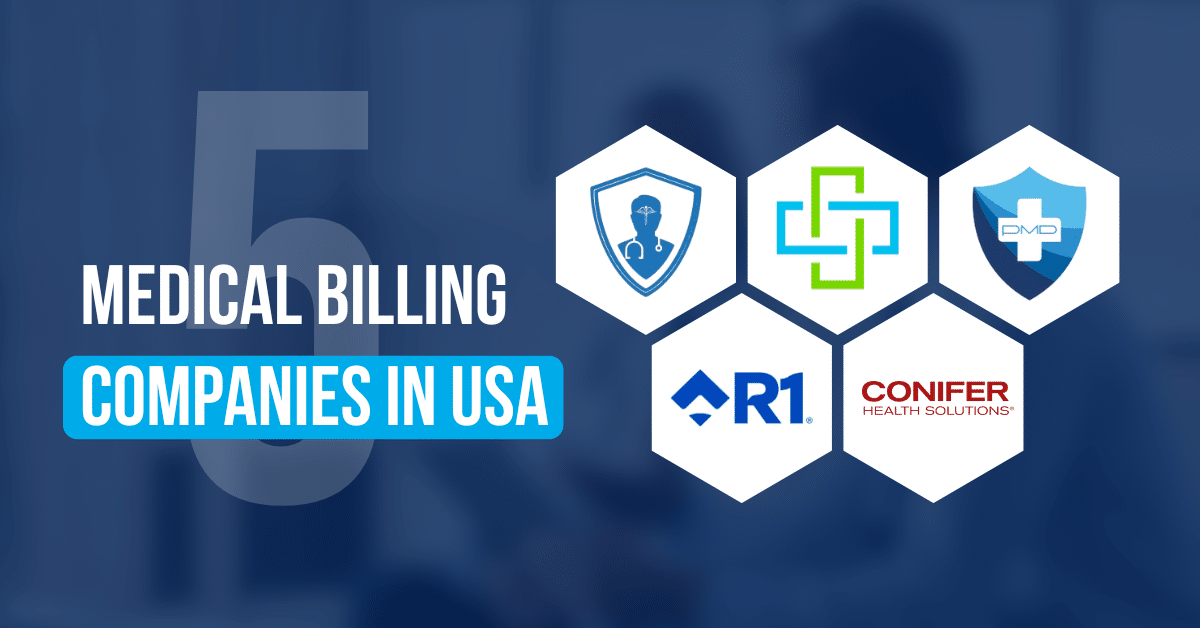Healthcare costs are going up by 9% this year. Insurance/medical billing companies are denying more claims, and collecting payments takes longer than it should. A lot of practices are rethinking their billing setup because of it.
If you’re looking for help with medical billing services, here are the companies doing the best work right now.
Why Practices Are Outsourcing Billing?
Most practices still see double-digit rejection rates on first submissions. That creates more work with appeals and follow-ups. At the same time, accounts receivable timelines keep stretching out, which hurts cash flow.
Medical billing companies makes sense when you need people who know payer rules, can handle the technology, and actually get claims paid.
What to Look for in Medical Billing Companies?
A few things matter when picking a partner:
- Specialty experience – Billing rules change by specialty. You want someone who’s worked with practices like yours.
- Denial management – Getting claims paid after rejections is where you make or lose money.
- Clear reporting – You should be able to check your numbers anytime without calling someone.
- EHR integration – If they can’t connect with your system smoothly, you’ll have problems.
- Flexible pricing – Some charge by collections, others use flat fees. Pick what fits your practice.
The 5 Best Medical Billing Companies in USA
1. Prime Well Med Solutions
Prime Well Med Solutions combines billing technology with experienced teams who handle the details. Their platform catches errors before claims go out, which cuts down on denials. They also have people managing appeals, posting payments, and following up with insurance companies.
They work with small practices and large hospital groups. Some clients use just the software. Others want full management where we handles everything.
What they offer:
- Automated claim scrubbing
- Coding review by trained staff
- Active denial management
- Real-time performance dashboards
- Integration with major systems
Their clients see higher first-pass acceptance rates, fewer denials, and shorter collection times. They follow HIPAA rules and do regular compliance audits.
We works well for MIPS healthcare and billing that want better results without switching their whole system around.
2. DoctorPapers
DoctorPapers runs a virtual billing service. Their remote teams handle coding, submissions, denial tracking, and accounts receivable follow-up. You don’t need to hire on-site billing staff.
They train their people on payer-specific rules, which helps avoid rejections. They also provide compliance support and reporting access so you can see what’s happening with your claims.
This setup keeps overhead low, which helps smaller practices or groups that don’t want to build a medical billing company.
3. PureMD
PureMD specializes in workers’ compensation and personal injury billing. Most medical billing companies avoid these because they’re complicated. PureMD’s team knows how to handle the claims, lien resolutions, and compliance documentation that come with accident and injury cases.
Their platform tracks submissions and payer follow-up. They stay on top of claims that can take months to settle.
If your practice deals with workers’ comp or personal injury cases regularly, PureMD has the specific experience you need.
4. R1 RCM
R1 RCM works mostly with hospitals and large health systems. They provide enterprise-level services including charge capture, coding audits, AR recovery, and compliance monitoring.
Their cloud platform integrates with major systems and tracks metrics like denial rates, AR days, and collection ratios in real time. They’re built for organizations that need to manage billing across multiple locations.
R1 RCM makes sense for large hospitals. Small practices won’t get much value from their enterprise focus.
5. Conifer Health Solutions
Conifer provides revenue cycle management to hospitals, physician groups, and health systems. They run billing through a centralized framework, which helps with consistency across locations.
Their services include analytics for payer performance, centralized denial recovery teams, multi-location support, and patient financial experience tools.
Like R1 RCM, Conifer is geared toward larger healthcare organizations that need scalable billing infrastructure.
How to Choose the Right One Among Medical Billing Companies?
Start by checking if they have experience with your specialty. Ask about their denial rates and how they handle appeals. Look at their reporting tools to make sure you’ll have access to your data.
Confirm they can integrate with EHR systems. Ask about their pricing structure and whether it fits your practice volume. Most transitions take 45 to 90 days, so factor that into your planning.
Get references from other practices. Ask specific questions about response times, accuracy, and how they handle problems.
Focus on their specialty experience, denial management process, reporting capabilities, and references from similar practices.
Why Prime Well Med Solutions Works?
Most medical billing companies are either software-only or outsourced teams with basic systems. Our MIPS registry combines both. You get technology that automates routine work and catches errors. You also get billing professionals who manage denials and insurance follow-ups.
Their clients see lower denial rates and faster collection times. They handle practices of all sizes and offer flexible service levels based on what you need.
If you’re looking to improve your billing performance, we is a solid starting point. They handle medical billing consultation and can walk you through what would work best for your practice.
May You Need to Read:
5 Best Practices to Streamline Your Medical Billing Program Workflow
How to Streamline Reimbursements with Efficient Medical Billing Systems
Medical Billing vs Revenue Cycle Management: What’s the Real Difference





